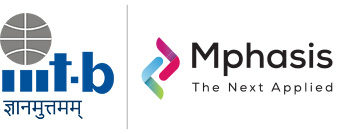CT scan analysis
for COVID-19 screening
Overview:
The goal of the project is to build a system that takes as input CT scans, and answers the following:The goal of the project is to build a system that takes as input CT scans, and answers the following:
1) Covid-infected: Yes or No, along with a confidence score
2) Contour detection of the lesions
Although RT-PCR tests are the gold standard for diagnosis of COVID-19, obtaining the results take several hours; also, the reported sensitivity level of this test is not more than 80%. Hence, it is the need of the hour to resort to a more reliable and faster means to diagnose the disease. Real-time analysis of CT scans could be utilized for faster and more reliable prediction of COVID-19.
The challenges in analysing CT scans to detect COVID-19 include the diversity in location, size and intensities of the lung lesions, apart from the subject-to-subject variations seen in all medical data. This could be further compounded by the ever-mutating virus, that could potentially result in manifestation forms that have not even been studied thus far. Hence it is important that the study be data-driven rather than restrict analysis using hand-crafted features alone. However, the well-known CT scan characteristics about the afflicted subjects, such as: abnormal chest CT, bilateral ground-glass shape lung opacities in subpleural areas of the lungs, should be incorporated into the study. Using a Deep Learning based multi-tasking framework for simultaneous classification and segmentation, along with saliency map computation, could be explored to solve this problem.
The study will also focus on the specific mutations seen among the Indian population of COVID patients. Several unique factors among our population such as our genetic makeup, food habits, administered vaccinations, climate – are seen as influencing factors. The study could explore if it indeed is the case and detect the important factors.
TEAM MEMBERS:
- Prof. Neelam Sinha
